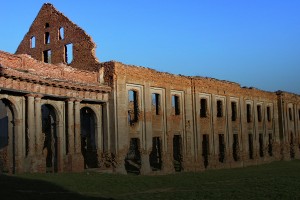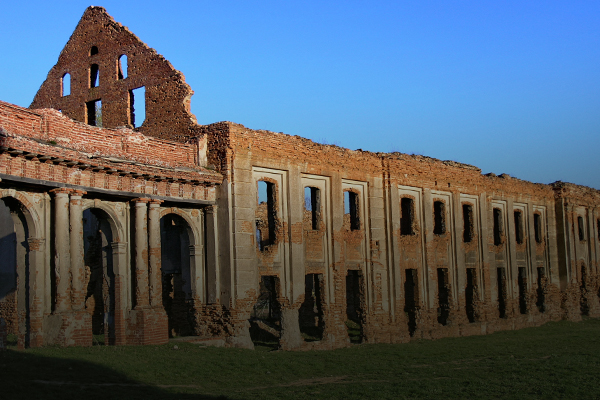
1 Peter 1:10-12 As to this salvation, the prophets who prophesied of the grace that would come to you made careful search and inquiry, seeking to know what person or time the Spirit of Christ within them was indicating as He predicted the sufferings of Christ and the glories to follow.
It takes more than sincerity to be correct; it takes careful study. Over the course of history, believers and Church leaders have sometimes allowed their own desires to color the way they interpreted the scriptures. Paul warned us that this would happen:
2 Timothy 4:3-5 For the time will come when they will not endure sound doctrine; but wanting to have their ears tickled, they will accumulate for themselves teachers in accordance to their own desires; and will turn away their ears from the truth, and will turn aside to myths.
Over the next few months we’ll be examining some of the historic ways believers have altered or misunderstood the Christian truth claims related to the nature of God the Father, Jesus, the Family of God, or the Nature of Man. Remember these distortions are either the result of sincere (albeit reckless) efforts, or insincere efforts reflecting the desires of men who “turned aside to myths”. We’ll begin with historic heresies related to the nature of God the Father. Ancient and historic believers sometimes struggled to understand (or accept) the triune nature of God. While God is consistently described as being “one”, God the father, Jesus and the Holy Spirit are described with the same nature, title and characteristics. The Trinity, as it has been identified in scripture, resolves the apparent contradiction. Over the course of history, however, some have misinterpreted how the three Persons of the Godhead exist in one Divine Being. Others struggled to understand how the God of the Old Testament ought to be reconciled with the way God is described in the New Testament:
Marcionism (2nd Century) Marcionites rejected the Old Testament and taught Christianity as something completely distinct from Judaism. They had no love for the God of the Old Testament and, like their leader, Marcion, they rejected all the Gospels but the Gospel of Luke (even this Gospel was redacted to omit any connection to Judaism). Marcionites believed the God of the Old Testament was a God of Wrath and judgment who could not be reconciled with the God of mercy described in the New Testament.
Leader(s) in the Heresy: Marcion of Sinope at Rome (110 – 160AD)
Corrector(s) of the Heresy: Tertullian wrote a five-book treatise against the heresy called, “Adversus Marcionem”
Monarchianism (2nd and 3rd Century) This heresy was derived from the Greek words, “mono” (“one”) and “arche” (“rule”). It taught there was only one God who existed as one person, the Father. Monarchianism taught either (1) the Father is God and the Son (Jesus) is only a man (Dynamic Monarchianism), or (2) the Father, the Son, and the Holy Spirit are never present at the same time, but are simply different “modes” of the same God (Modal Monarchianism).
Leader(s) in the Heresy: Theodotians (190 AD) and Paul of Samosata, Bishop of Antioch in Syria (260AD) taught Dynamic Monarchianism, and Praxeas (200AD), a Roman priest from Asia Minor, taught Modal Monarchianism
Corrector(s) of the Heresy: Tertullian wrote against this heresy in his tract, “Adversus Praxean” (213AD)
Sabellianism (3rd Century) This heresy, a form of modalistic Monarchianism named for its founder, taught God the Father, Jesus the Son and the Holy Spirit were different modes of one God (in relationship to man), rather than three distinct persons (in objective reality). Jesus Christ and God the Father were not thought to be distinct persons, but two aspects or offices of one person.
Leader(s) in the Heresy: Sabellius, a Roman priest and theologian (215AD?)
Corrector(s) of the Heresy: Tertullian and Demetrius (Patriarch of Alexandria) wrote against the heresy
Manichaeism (3rd Century) This heresy merged a number of world religious systems, including Gnostic Christianity, Buddhism, and Zoroastrianism. It was a form of religious “dualism” proposing two eternal principles of equal power: good and evil. Much like Gnosticism, it claimed the “gnosis” (hidden, esoteric knowledge) could be discovered intellectually or when revealed by messengers like Buddha, Jesus and Mani (the founder of the heresy). Jesus was not God in this system, but just another source of gnosis. Mani declared himself to be a disciple and apostle of Jesus and said he was the “Paraclete” (the “comforter” or “helper”) Jesus had promised.
Leader(s) in the Heresy: Mani, of Babylon (210 – 276AD)
Corrector(s) of the Heresy: Roman Emperor Theodosius I declared it to be heretical and Augustine of Hippo (who was once himself a Manichaean, wrote against it.
Socinianism (16th and 17th Century) This heresy denied the Triune nature of God. It claimed God was one and the Holy Spirit was simply God’s power. It denied the pre-existence of Jesus, His incarnation and Deity (it taught Jesus was just a man who was later deified, and therefore deserved worship as a “lower” god). Followers of Socinus did not believe Jesus saved us on the cross, but rather provided us an example of self-sacrifice.
Leader(s) in the Heresy: Laelius Socinus (died 1562AD) and Faustus Socinus (died 1604AD)
Corrector(s) of the Heresy: A form of Psilanthropism (a heresy advocating Jesus was merely a man), heresies similar to Socinianism were condemned in the First Council of Nicaea in 325AD New alterations of Christianity are seldom new. In the end, Christian Case Makers, relying on the evidence provided in the scriptures, must guard themselves from such heresies. Share on X
This brief list is limited to those historic heresies describing the nature of God the Father. You’ve probably noticed the similarity many of these ancient misrepresentations of Christianity have with current distortions advocated by Mormons, Jehovah’s Witnesses and others. New alterations of Christianity are seldom new. In the end, Christian Case Makers, relying on the evidence provided in the scriptures, must guard themselves from such heresies. Each of us must not “believe every spirit, but test the spirits to see whether they are from God, because many false prophets have gone out into the world” (1 John 4:1). In addition, we must “examine everything carefully; hold(ing) fast to that which is good” (1 Thessalonians 5:21) like the “noble-minded” Bereans who “received the word with great eagerness, examining the Scriptures daily to see whether these things were so” (Acts 17:11). Join our Cold-Case Christianity Community for access to a downloadable Bible Insert on this topic.

J. Warner Wallace is a Dateline featured cold-case homicide detective, popular national speaker and best-selling author. He continues to consult on cold-case investigations while serving as a Senior Fellow at the Colson Center for Christian Worldview. He is also an Adj. Professor of Christian Apologetics at Talbot School of Theology, Biola University, and a faculty member at Summit Ministries. He holds a BA in Design (from CSULB), an MA in Architecture (from UCLA), and an MA in Theological Studies (from Gateway Seminary).

































Pingback: Historic Heresies Related to the Nature of God the Father (Free Bible Insert) | Truth2Freedom's Blog
Pingback: Historic Heresies Related to the Nature of Jesus | Cold Case Christianity
Pingback: Historic Heresies Related to the Nature of Jesus | Apologetics ForumApologetics Forum
Pingback: Historic Heresies Related to the Nature of Salvation - Cross Examined - Christian Apologetics Ministries | Frank Turek | Christian Apologetics | Christian Apologetics Speakers
Pingback: Historic Heresies Related to the Nature of Salvation | Apologetics ForumApologetics Forum
Pingback: Historic Heresies Related to the Nature of Man and the Role of the Church | Cold Case Christianity
Pingback: Cold Case Christianity: Historic Heresies Related to the Nature of Man and the Role of the Church | Truth2Freedom's Blog
Pingback: Historic Heresies Related to the Nature of Man and the Role of the Church | Apologetics ForumApologetics Forum
Pingback: Why Christians Hold Truth in High Regard | CrossExamined.org
Pingback: Historic Heresies Related to Nature of God the Father, the Nature of Salvation, the Nature of Man and the Role of the Church | Truth2Freedom's Blog
Pingback: What Does Christianity Say About the Nature of God? Two Important Truths | Cold Case Christianity
Pingback: Historic Heresies Related to the Nature of God the Father | Brother Murf's Corner
CaptZac
April 9, 2023 at 10:26 am
JW,
Very well written and concise on the common heresies in relation to God, Christ is son, and the Holy Spirit.
I wish you would have gone a step further however and touched on the prevalent understanding in the early church of subordinationism.
The council of Nicea in 325 was dominated by bishops who adhered to subordinationism. It is likely a factor in the length of deliberation in coming to a consensus to condemn the Arian heresy.
Subordinationism doesn’t necessitate belief that Christ was created.
This is the crux of the matter IMO that confuses many Christians.
Ask 10 Christians to explain the Trinity and you’ll likely get numerous definitions.
Logic dictates that a person is a being. Therefore 3 persons are 3 beings.
However, God the Father begot his Son before creation began. The Father is unbegotten, so in this sense Christ is subordinate to the Father albeit of the same essence. (homoousios) The Holy Spirit is the Father’s spirit as well as the Son’s spirit. Therefore the Holy Spirit is of the same essence (homoousios) and comes forth from both Father and Son.
Now, as logic would have it, there was never a time when the Father, Son & Holy Spirit didn’t exist. Just the same as there was never a Time when Time didn’t exist simply because it could not therefore be defined as Time.
However God has existed before Time existed as Time is a dimension of measurement, and logically must be finite. But God by contrast is infinite.
So, without volumes of theological dissection the Son & the Holy Spirit have infinitely come forth from the Father. They have their origin from the Father and have always existed. Being subordinate to the Father in no way diminishes their eternal and divine nature since they are not created but of one essence eternally with the Father.